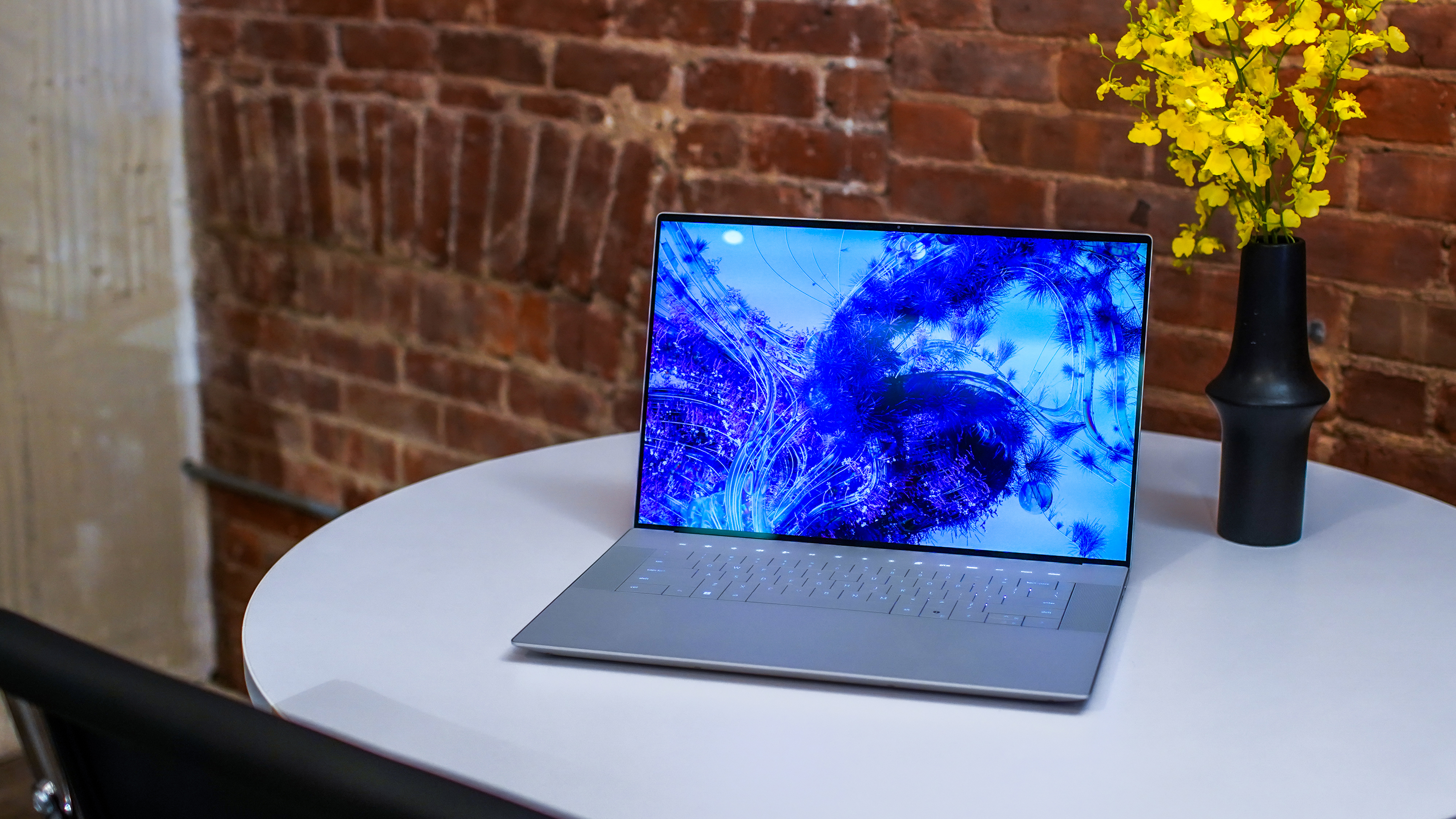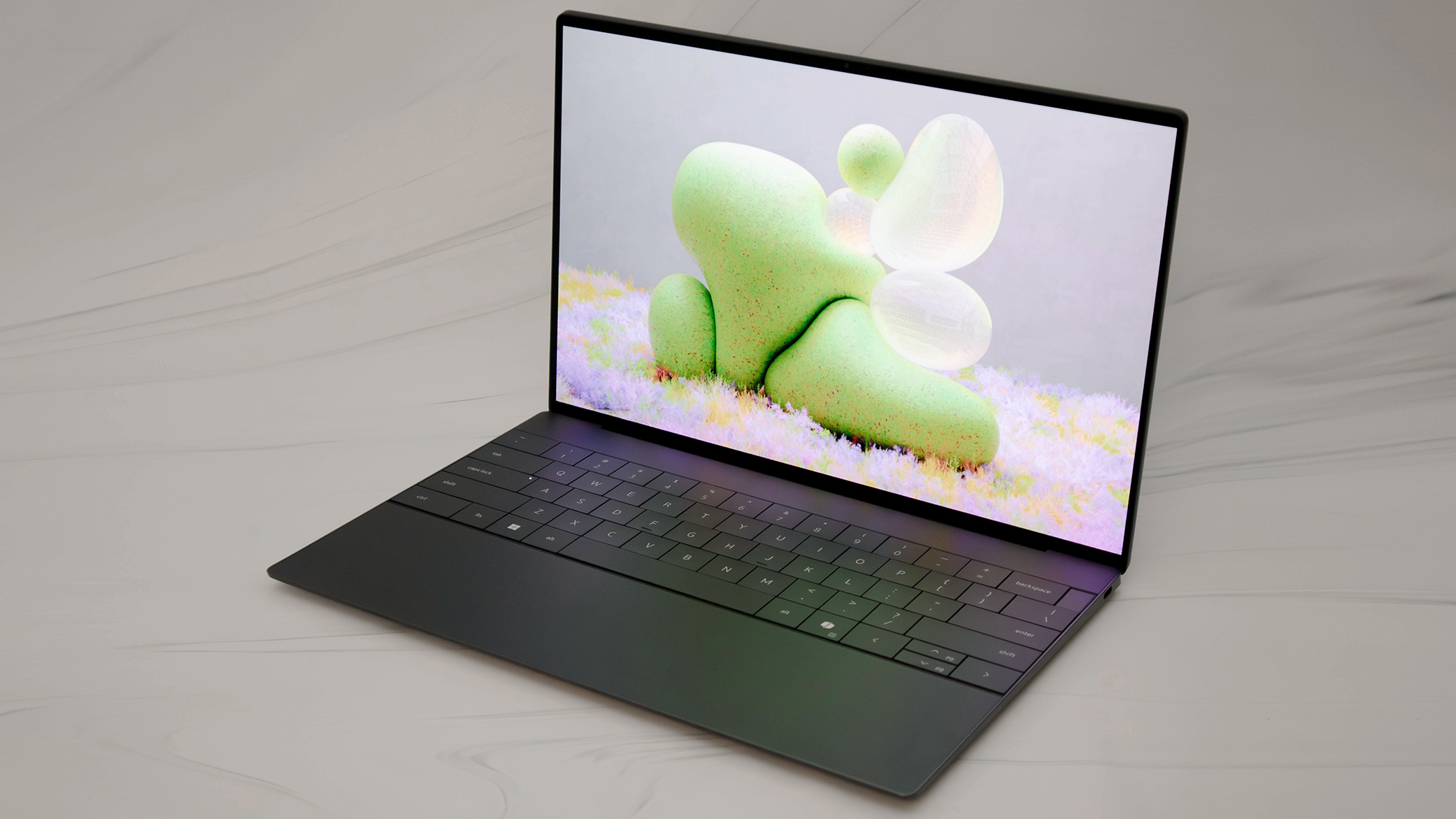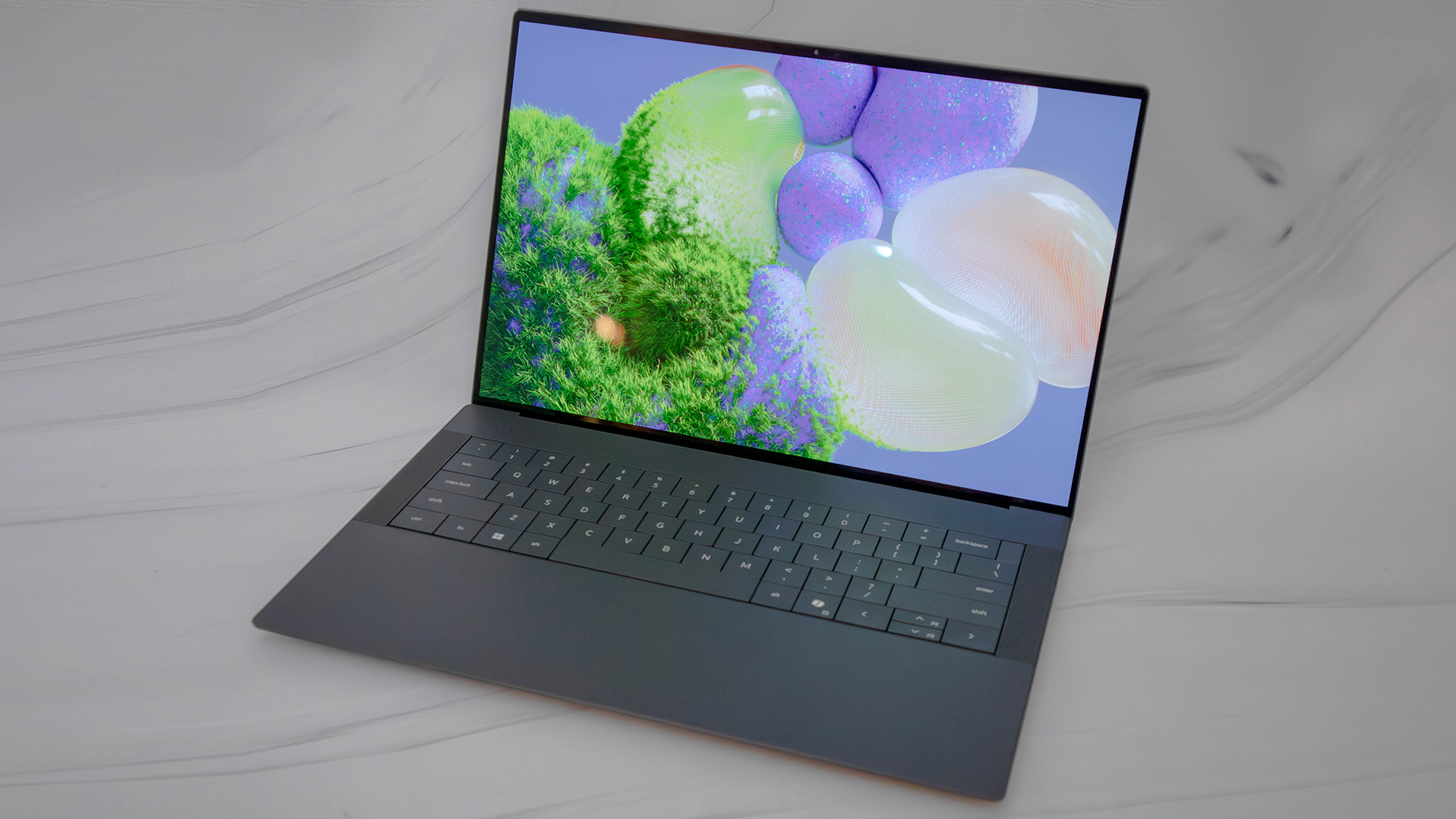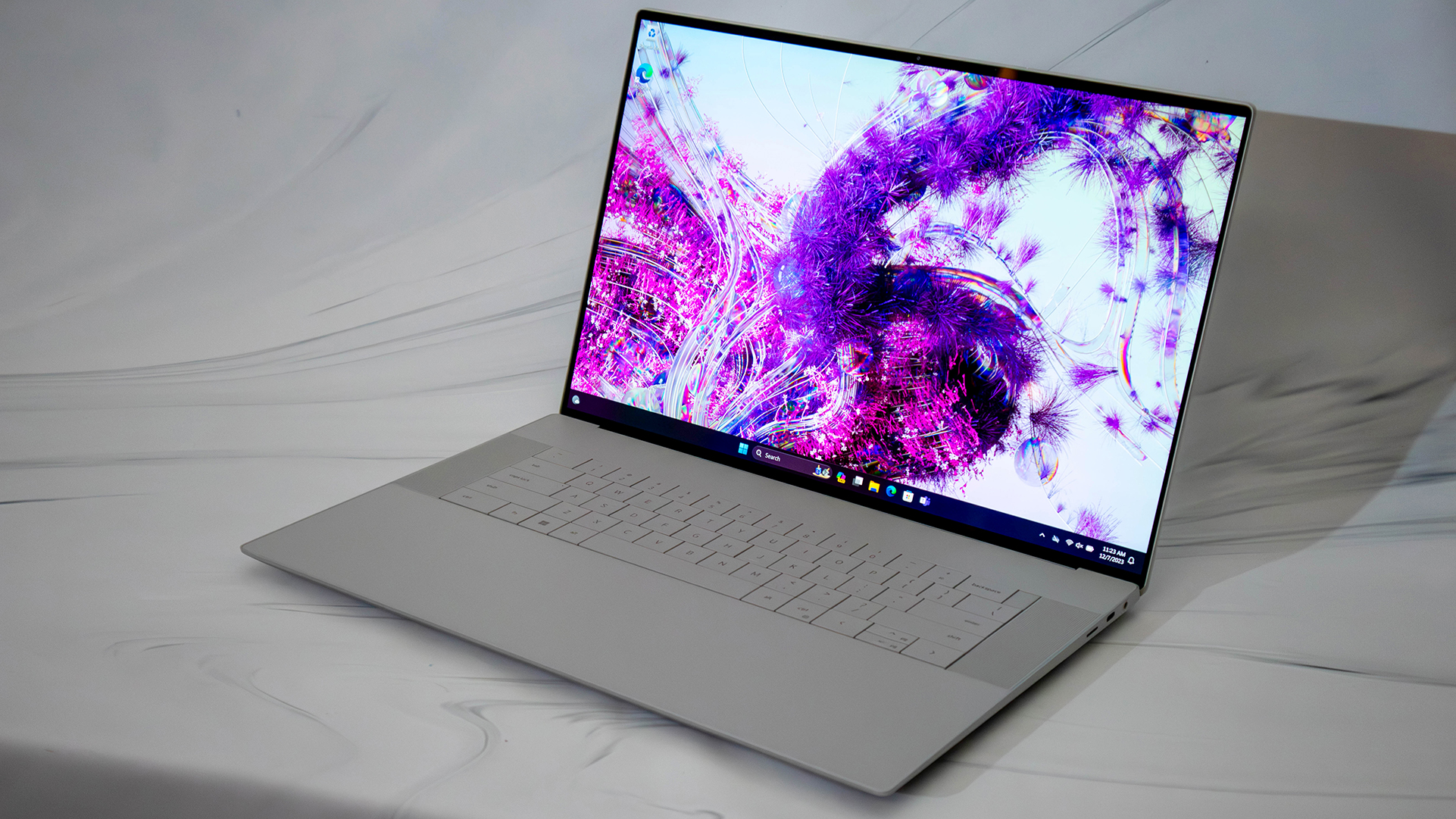I tried Dell’s new XPS laptops and love the OLED display upgrades for 2024
Dell's 2024 XPS laptop lineup has a new minimalist look and internal upgrades


Get all the latest news, reviews, deals and buying guides on gorgeous tech, home and active products from the T3 experts
You are now subscribed
Your newsletter sign-up was successful
Dell has just dropped details of its XPS laptop lineup for 2024, with three new laptops that share the minimalist look and feel of 2023's Dell XPS 13 Plus, but bring a minimalist chic to the updated design and offer OLED display upgrades all round. Sound like contenders for the best laptops of the year already.
The new XPS 13 (9340), XPS 14 (9440), and XPS 16 (9640) – that's new 13-inch, 14-inch and 16-inch models that I'll get into in more hands-on detail below – all present plain glass front panels that include a hidden touchpad with haptic feedback, plus offer the latest 14th generation Intel Core Ultra processors.
All of the new models will be available in the first quarter of 2024, with prices starting at $1299.99 for the XPS 13, $1699.99 for the XPS 14, and $1899.99 for the XPS 16. At this stage there's no wider pricing for other regions, which is typical of Dell's US-first launch strategy. All models will come in Platinum White or Graphite Black finish options though, so the choice is yours.
I briefly looked at all three laptops in person and was impressed with the new minimalist design and sleek look. Both finishes have the same clean, simple look and feel, with an uncluttered utilitarian look that is all about getting things done. I found the large keyboards comfortable to type on, but the hidden touch panel takes a bit of getting used to.
I wasn’t a fan of the touch function keys, though: I use the function keys a lot, and not having physical keys was a problem for me, as I couldn't find the function keys by touch. Overall, though, I found the design changes positive: the clean, functional design makes it easy to focus on work.
2024 Dell XPS 13: The crown jewel

The XPS 13 (9340) is the crown jewel in the XPS laptop lineup, the lightweight laptop to beat. It is the smallest of the new lineup, with a 13.4-inch display available in FHD (1920 x 1080 pixels) and QHD (2560 x 1600) LED resolutions, plus a premium 3K+ (2880 x 1800) OLED option. The QHD and 3K+ versions support 100% DCI-P3 colour, which is a plus for video editors and photographers who could benefit from this more expansive colour space.
The XPS 13 (9340) is powered by an Intel Core Ultra processor, with options from the 12-core Intel 5 Core Ultra (125H at up to 4.5Ghz) through to the 16-core Intel Core Ultra 7 (165H at 5Ghz), twinned with up to 64GB of DDR5 memory. Up to 2TB of SSD storage is available at launch, although Dell says a 4TB option will be available shortly after.
Get all the latest news, reviews, deals and buying guides on gorgeous tech, home and active products from the T3 experts
Although the XPS 13 offers a 120Hz refresh rate and Dolby Vision, no discrete graphics option is available. That keeps things thin and light, though, with this laptop just 14.8mm thick. One interesting thing to note is that Dell has increased the price of the lowest-end option: the 2023 XPS 13 9315 started at $899, while the cheapest XPS 13 (9340) is now $1299.99. Dell is clearly trying to keep the XPS brand at the premium, higher-end price point – and clearly also succeeding.
2024 Dell XPS 14: Power & Portability

The XPS 14 (9440) is the middle of the new lineup, with the Intel Core Ultra 7 processor, an attractive OLED display, and an NVidia GeForce RTX 4050 graphics chip option that adds some extra oomph for gaming or media editing.
Two processor options are available, using the Intel Core Ultra 7 processor with 16 cores. The base-level model uses the 155H processor, which maxes out at 4.8 GHz. You can get the 165H processor for an additional performance bump, which ups the top speed to 5Ghz. These can be equipped with up to 64GB of DDR5 memory and 4TB of SSD storage.
There are two display options available for the 14.5-inch screen. First is an FHD+ (1920 x 1200 pixels) LED, but a premium QHD (3200 x 2000) OLED option offers a 100% P3 colour gamut and a higher contrast ratio.
The frame of the XPS 14 is made of CNC machined aluminium, which keeps the weight down to a manageable 3.8lbs/1.7kg. It is also a pretty thin laptop, 0.71in/18mm thick.
2024 Dell XPS 16: Powerhouse performance

The XPS 16 (9640) is a big beast, but not as big as its older equivalent used to be. Last year's XPS 17 (9730) lived in this spot, but Dell has now gone with a 16.3-inch size panel and minimal bezel, so the whole thing is closer to 16-inches than 17. Plus, it sounds cooler.
The internals of the XPS 16 have also been upgraded, with processor options from the Intel Core Ultra 7 155H (16 cores, up to 4.8Ghz) through to the Intel Core Ultra 9 (185H, which ups the maximum speed to 5.1Ghz). Up to 64GB of DDR5 RAM and 4TB of SSD storage can be ordered.
For the 16.3-inch display, Dell is offering two options: an FHD+ (1920 x 1200 pixels) LCD or a 4K (3840 x 2400) OLED. The LCD screen runs up to a 120Hz refresh rate, while the OLED one runs at 90Hz. A discrete graphics processor powers either display option, either the Nvidia GeForce RTX 4050, 4060, or 4070. The 4050 comes with 6GB of GDDR6 RAM, while the 4060 and 4070 come with 8GB of DDR6 RAM.
The XPS 16 (9640) is relatively light for its size, though, weighing 4.8 lbs/2.2 kg and measuring about 3/4in or 20mm thick. It also includes three Thunderbolt 4 connections and supports the new Wi-Fi 7 wireless standard.

Richard Baguley has been writing about technology since the 1990s, when he left a promising career in high finance to work on Amiga Format magazine for Future. It has been downhill for him ever since, writing for publications such as PC World, Wired and Reviewed.com. He has tested gadgets as diverse as 3D printers to washing machines. For T3, he covers laptops, smartphones, and many other topics. He lives near Boston in the USA with his wife, one dog, and an indeterminate number of cats.